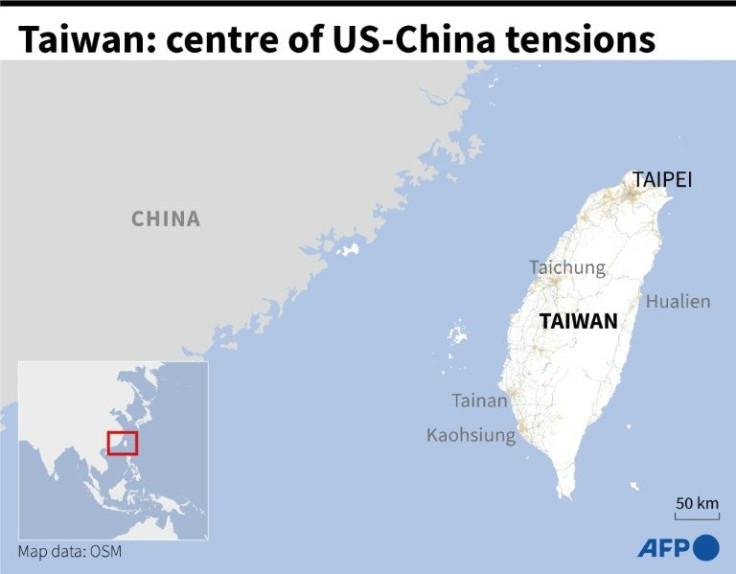China Warns US Over Taiwan Policy Act, Says Passage Will Affect Relations And Peace
KEY POINTS
- The Taiwan Policy Act is seen as the most comprehensive restructuring of the U.S. policy toward the island
- It lays out provisions for sanctions against China and enhancing U.S. military support to Taiwan
- Beijing says the U.S.' approval of the bill violates the one-China principle
Angered by the U.S. Senate committee's approval of the Taiwan Policy Act of 2022, China has said that the move "seriously breaches" Washington's commitment to Beijing on Taiwan and violates the one-China policy.
Beijing warned that the bill's passage will "shake the political foundation of China-US relations," cause "extremely serious consequences," and affect "peace and stability across the Taiwan Strait."
"It constitutes an interference in China's internal affairs, violates international law and basic norms in international relations, and sends a seriously wrong signal to the 'Taiwan independence' separatist forces," China's Foreign Ministry Spokesperson Mao Ning said at a press conference Thursday.
The Foreign Ministry spokeswoman further noted that China had lodged serious démarches with the U.S. side.
If the bill "continues to be deliberated, pushed forward or even become law, it will greatly shake the political foundation of China-US relations and cause extremely serious consequences for China-US relations and peace and stability across the Taiwan Strait," the spokeswoman added.
"There is only one China in the world and Taiwan is an inalienable part of China's territory," the foreign ministry spokeswoman said.
Demanding that the U.S. stop "advancing" deliberations on the Taiwan Policy Act 2022, Beijing cautioned Washington against using the "Taiwan card" to contain the mainland.
The U.S. Senate committee Wednesday approved the Taiwan Policy Act of 2022. It is being seen as the most comprehensive restructuring of the U.S. policy toward the island since the Taiwan Relations Act of 1979.
The legislation, which lays out sanctions against China if it uses force to try to seize Taiwan, includes provisions to significantly enhance U.S. military support to Taipei.
Although the U.S. has been selling weapons to Taiwan for decades, the new legislation is a step further in providing additional security assistance of $4.5 billion over the next four years to the self-governing island democracy.
The strong bipartisan nature of the vote is seen as a clear indication of support from both Republicans and Democrats for changes in the U.S. policy towards Taiwan, including treating Taipei as a major non-NATO ally.
Ever since the bill's introduction in June, China has warned to take "resolute countermeasures" if Washington took actions harming Beijing's interests.
Time and again, Beijing has claimed the self-governed democratic island of Taiwan as part of its territory. It has long vowed to "reunify" the island with the Chinese mainland, by force if necessary.
Tensions between Taiwan and mainland China have been high since House Speaker Nancy Pelosi visited Taipei in August. China responded by ordering several days of military drills around the island.

© Copyright IBTimes 2024. All rights reserved.






















